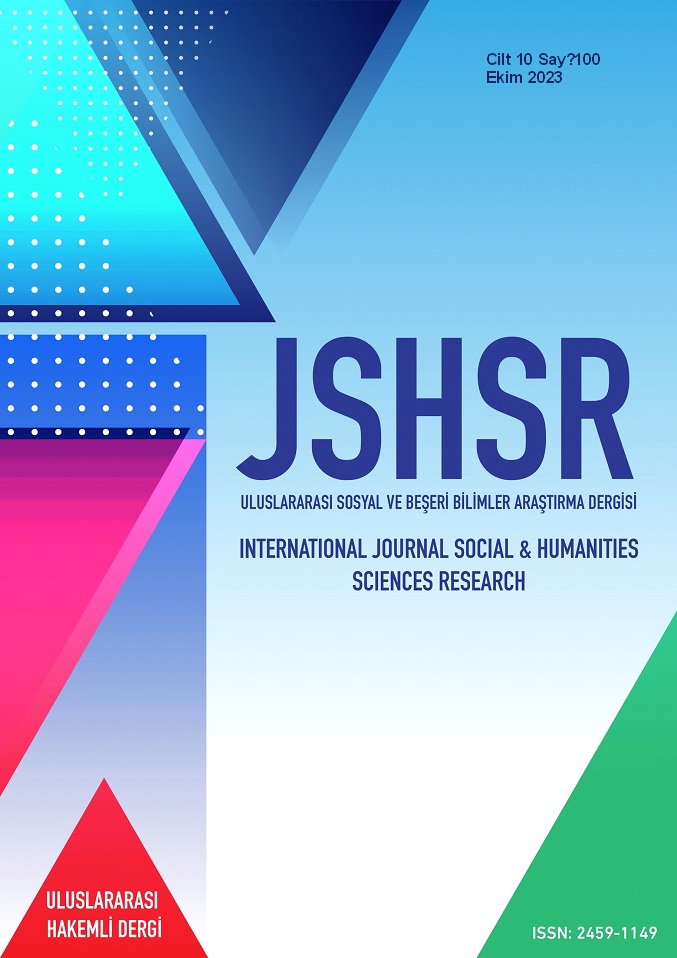The Concept of Logos in the Context of the Hearing of Being
DOI:
https://doi.org/10.5281/zenodo.10028764Keywords:
Heidegger, Logos, Being, Hearing, SubmissionAbstract
This article discusses how Heidegger explains the concept of Logos from the 50th fragment of Heraclitus. The fragment is as follows, in Heidegger’s translation: “When you have listened not me but the Meaning, it is wise within the same Meaning to say: One is All”. Heidegger presented this fragment to explain the concept of the Logos as a lecture, which was later published in the book Essays and Lectures in 1954. In order to better understand Heidegger’s thoughts on Logos, the article also refers to his book Being and Time, published in 1927, and Introduction to Metaphysics, published in 1953. Heidegger argued that an originary and etymological analysis of Logos was necessary to counter the obstruction of philosophical thinking by Logic in the periods following Plato and Aristotle. In this analysis, Heidegger arrived at the definition of Logos as “the Laying that gathers” as a result of its connection with the verb Legein and “that which conceals and reveals its nature” as a result of its relationship with Phusis. By emphasizing the fundamental unity of Logos with phusis, aletheia, and polemos, Heidegger reveals that Logos essentially reveals the meaning of “All is One”. The way for human beings to hear this truth revealed by the Logos is not through intellectual and logical deduction but through a true act of listening, surrendering in belonging to the Logos that brings everything together. If “phusis”, translated as “nature” in the sense we understand it today, is truly understood, the Logos will also be truly understood. Thus, at this point where Being and Thought merge, the principle of “All is One” revealed in the Logos will come together at both the spoken and the heard level, paving the way for the path of thought that Wisdom traverses. In this case, the Wise is the one who, in his belonging to the Logos, listens to what is said as it is, and witnesses the harmony by bringing the appearances that appear to be contradictory to the Same through his struggle. However, “All is One” is more than a principle of life, it is a real effort of thinking.
References
Clark, T. (2002). Martin Heidegger, Routledge.
Dahlstrom, D. (2001). The scattered logos, in A Companion to Heidegger’s Introduction to Metaphysics, Ed. By. Richard Polt and Gregory Fried, Yale Universty Press, pp. 83-102.
Dorfman, E. (2006). La Parole qui voit, la vision qui parle: De la question du Logos dans “Etre et temps”, Revue philosophique Louvain, Fevrier, 104(1), 104-132, Peeters Publishers. https://www.jstor.org/ stable/26342235.
Heidegger (2000). Introduction to metaphysics, Trad, by. Gregory Fried and Richard Polt, Yale University Press.
Heidegger (1958). Logos (Heraclite, Fragment 50, in Essais et Conferences, trad. par Andre Preau, Tel Gallimard.
Heidegger (2008). Varlık ve zaman, Kaan H. Ökten (Çev.), Bahçeşehir Üniversitesi.
Heidegger (2018). The inception of occidental thinking and logic: Heraklitus’ doctrine of the logos. Julia Goesser and S. Montgomery (Çev.), Ewegen, Bloomsbury.
Herakleitos (2009). Fragmanlar. Cengiz Çakmak (Çev.). Kabalcı.
Küçükalp, K. (2008). Batı metafiziğinin dekonstrüksiyonu: Heidegger ve Derrida. Sentez yayınları.
Kontogianni, E. (2019). Héraclite par Heidegger: le logos comme recueillement de la physis, Les Cahiers philosophiques de Strasbourg [En ligne], 45 | 2019, mis en ligne le 30 mai 2019, consulté le 09 novembre 2022. http://journals.openedition.org/cps/1793; DOI : https://doi.org/10.4000/cps.1793
McCormick, P. (1974). Heidegger sur le chemin du langage, in Philosophiques, vol. 1, no 2. http://id.erudit.org/iderudit/203011ar.
Richardson, W. J. (2003). Heidegger: through phenomenology to thought. Fordham Unıversity Press.
Taylor, C. (2005). Heiddeger on language, in A Companion To Heidegger, Ed. By Hubert L. Dreyfus and Mark A. Wrathall, Blackwell Publishing, pp. 433-455.
White, C. J. (2005). Heidegger and the Greeks, in, A Companion To Heidegger, (Ed. By Hubert L. Dreyfus and Mark A.) Wrathall, Blackwell Publishing.
Downloads
Published
How to Cite
Issue
Section
License
Copyright (c) 2023 INTERNATIONAL JOURNAL OF SOCIAL HUMANITIES SCIENCES RESEARCH

This work is licensed under a Creative Commons Attribution 4.0 International License.


